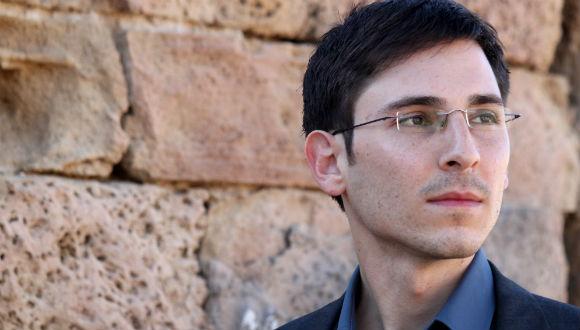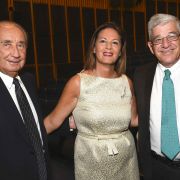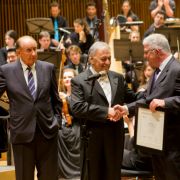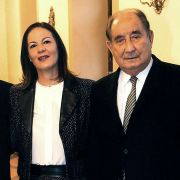From TAU to Berlin and Carnegie Hall
Berlin-based composer Gilad Hochman, 33, an alumnus of TAU’s Buchmann-Mehta School of Music, is counted among Israel’s most talented and successful young composers. Born in 1982 and instilled with a love of music by parents, Hochman began studying piano at age six and composing at age nine. He studied under composer Ilya Heifets and by 22, was appointed Composer in Residence at the Ra’anana Symphonette Orchestra. By 24, he was the youngest composer ever to win the prestigious Israeli Prime Minister’s Award, where he was cited as a “fascinating, original and colorful creator.”
Hochman graduated with honors from TAU’s Buchmann-Mehta School of Music in 2007, where he studied under renowned composer Gil Shohat and some of Israel’s leading senior musicians.
“One cannot underestimate the importance of studying in a place that is so dedicated to music and the humanities, to the immense knowledge accumulated and passed on by committed professors,” says Hochman. “At the Buchmann-Mehta School of Music I gained crucial analytical, theoretical and practical tools, knowledge of various aesthetic approaches and historical perspective. Not less important was having the freedom to try and fail, to pursue my curiosity and enthusiasm, and to search for my own voice in music. It was also a place where I could have a real exchange with fellow students – some of whom are today my closest friends and colleagues.”
Hochman’s career has included performances of his work by top orchestras both in Israel and overseas, including a musical debut at the Berlin Philharmonie by the Deutsches Kammerorchester Berlin in 2013, performances at Carnegie Hall in New York, the Moscow Tchaikovsky Conservatory, St. Jame’s Piccadilly in London, and the Henry Crown Symphony Hall in Jerusalem, among numerous others. His latest work, “Suspended Reality” was performed this year by the Israel Sinfonietta Beersheba together with the Philharmonic of Nations and premiered at the German Parliament and six other venues.
Hochman's work includes a wide range of compositions for solo instruments, chamber music, choirs and orchestras which reflects a variety of aesthetic approaches. His music continues classical music’s development on the one hand, while emphasizing Jewish and Israeli themes on the other hand.
“In retrospect, my seven years at TAU created a solid ground for me to further build on and continue my creative work. Especially in a time where deep and enriching cultural achievements are being somewhat overtaken by more trendiness, I feel fortunate to have been educated in a place focused on the highest standards of music making,” says Hochman.






